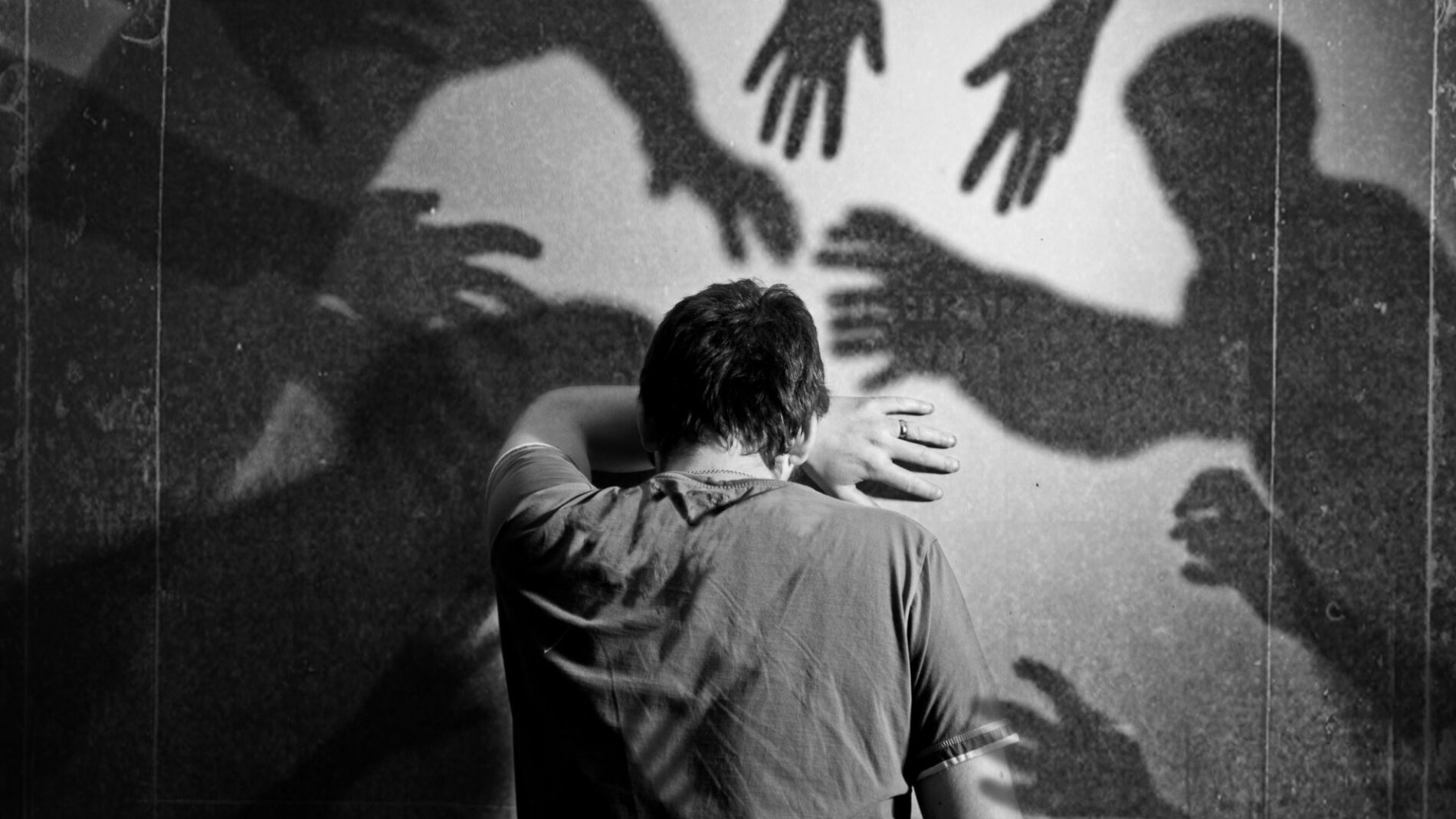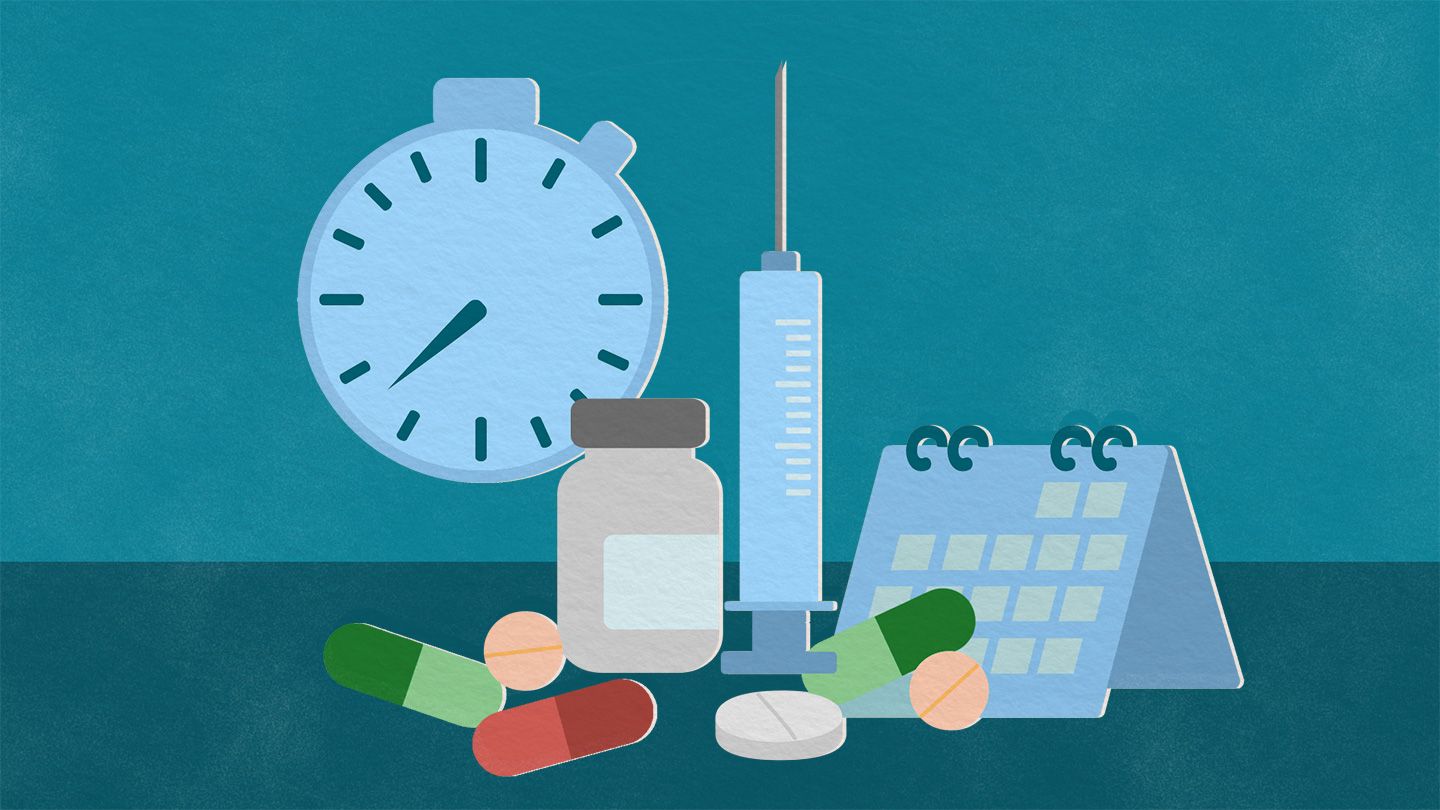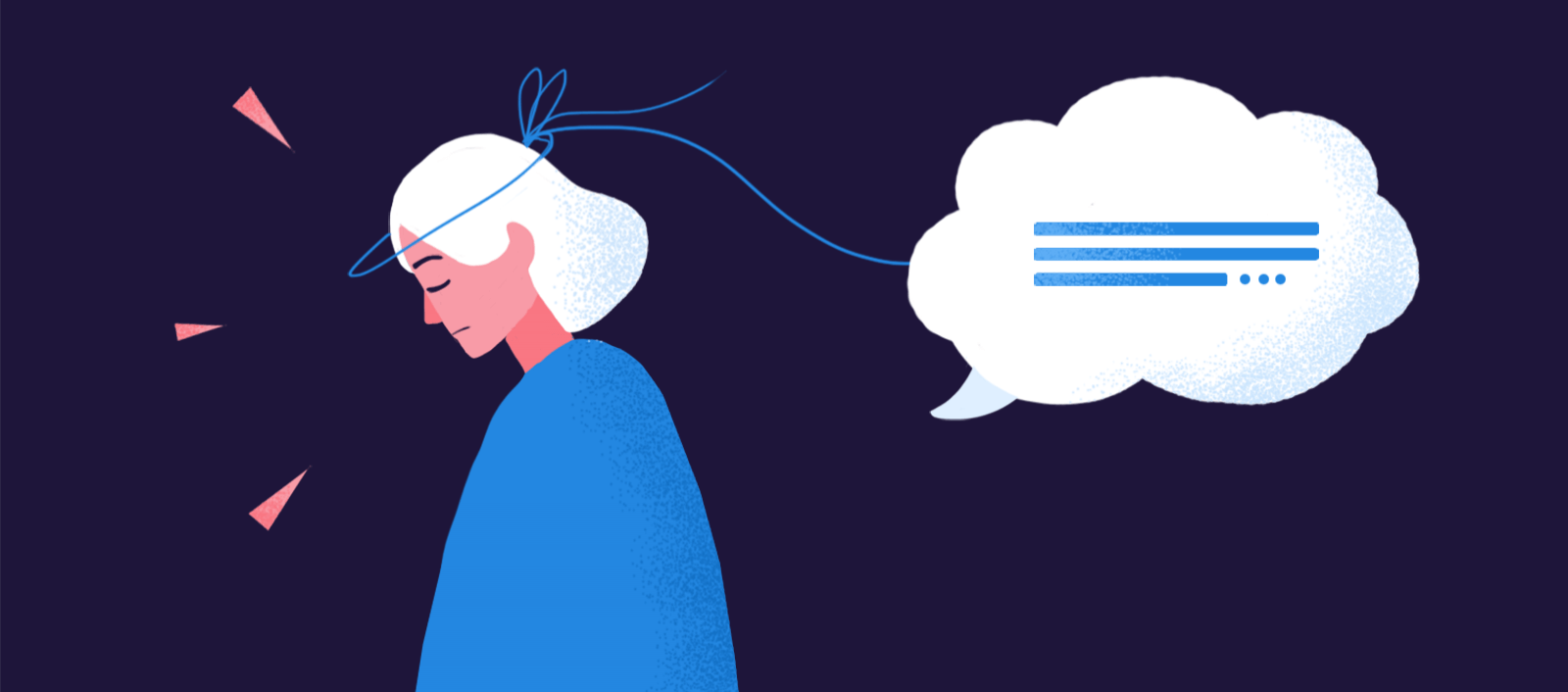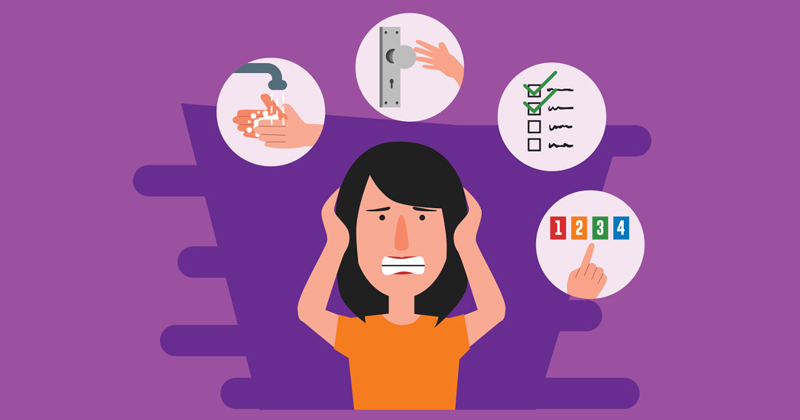Anxiety disorders are very common, with OCD being one of the most well-known. This disorder can be incredibly debilitating for those who suffer from it, making everyday tasks seem impossible. If you or someone you know is struggling with OCD, it’s important to understand all that you can about the condition. In this blog post, we will discuss what OCD is, the symptoms of the disorder, and how it can be treated. We will also provide resources for those who need help getting started on their journey to recovery.
Contents
- 1 What Does “OCD Anxiety Disorder” Mean?
- 2 Signs of OCD Anxiety Disorder
- 2.1 Excessive Worry or Fear
- 2.2 Compulsions or Repetitive Behaviors
- 2.3 Avoidance Behaviors
- 2.4 Self-Doubt
- 2.5 Unwanted Thoughts
- 2.6 Fear of Dirt
- 2.7 Aggressive Thoughts
- 2.8 Need For Everything Systematic
- 2.9 Difficulty In Tolerating Uncertainty
- 2.10 Difficulty In Tolerating Disorganization
- 2.11 Intolerance Of Isolation
- 2.12 Hypersensitivity To Stressful Situations
- 3 Causes And Triggers of OCD Anxiety Disorder
- 4 Negative Impacts of OCD Anxiety Disorder
- 5 Diagnosis of OCD Anxiety Disorder
- 6 Treatment of OCD Anxiety Disorder
- 7 Types of Therapy For OCD Anxiety Disorder
- 8 How To Prevent OCD Anxiety Disorders?
- 9 How To Help Someone With OCD Anxiety Disorders?
- 10 Conclusion
What Does “OCD Anxiety Disorder” Mean?
 OCD Anxiety disorder stands for Obsessive-Compulsive Disorder. It is an anxiety disorder and people who suffer from it usually have reoccurring, unwanted thoughts (obsessions) and use rituals (compulsions) to control the anxiety these thoughts cause. OCD can be mild, moderate, or severe, and it often starts in adolescence or young adulthood.
OCD Anxiety disorder stands for Obsessive-Compulsive Disorder. It is an anxiety disorder and people who suffer from it usually have reoccurring, unwanted thoughts (obsessions) and use rituals (compulsions) to control the anxiety these thoughts cause. OCD can be mild, moderate, or severe, and it often starts in adolescence or young adulthood.
There are four main types of OCD: washing and cleaning; checking; hoarding; and ruminating. People with OCD may have one type, or they may switch between types. Some people also experience a fifth type, called “undifferentiated” OCD, which is a catch-all category for symptoms that don’t fit neatly into any of the other types.
OCD can be a debilitating disorder, but there are treatments that can help. The most effective treatment for OCD is a type of cognitive-behavioral therapy called exposure and response prevention (ERP). ERP involves gradually exposing yourself to your obsessions and learning to resist the urge to perform your compulsions. Medication can also be used to treat OCD, although it is not as effective as ERP.
Signs of OCD Anxiety Disorder

There are many potential signs of OCD anxiety disorder. Some people with the condition may have very noticeable symptoms, while others may only have a few mild symptoms. The most common symptoms of OCD anxiety disorder include:
Excessive Worry or Fear
One of the signs is excessive worry or fear. People with OCD anxiety disorder tend to worry excessively about things that are unlikely to happen. For example, they may worry about getting sick or being in a car accident. Sometimes there may be no logical reason for their worry. When someone gets caught up in their fear, it can become hard to focus on anything else.
Compulsions or Repetitive Behaviors
Another sign of OCD anxiety disorder is compulsions or repetitive behaviors. People with this condition may feel the need to wash their hands repeatedly, check the locks on their doors, or count objects over and over again. These compulsions are often done in an effort to reduce anxiety or prevent something bad from happening. However, they only serve to make the person feel more anxious and stressed.
Avoidance Behaviors
People with OCD anxiety disorder may also avoid certain situations or objects that trigger their anxiety. For example, they may avoid driving because they are afraid of getting into a car accident. Or they may avoid going to the grocery store because they are afraid of getting sick. Avoidance only serves to increase anxiety in the long run.
Self-Doubt
Another common symptom of OCD anxiety disorder is self-doubt. People with this condition may second-guess themselves constantly. They may doubt their decisions, their memories, or even their own sanity. This self-doubt can be extremely debilitating and make it hard to live a normal life.
Unwanted Thoughts
Some of the less common symptoms of OCD anxiety disorder include unwanted thoughts, such as intrusive thoughts or images. These may be disturbing or violent in nature and can cause a great deal of anxiety. People with this condition may also have difficulty controlling their impulses, which can lead to problems at work or school.
Fear of Dirt
Another symptom of OCD anxiety disorder is a fear of dirt or contamination. People with this condition may be afraid of germs, bacteria, or illness. They may avoid touching doorknobs, shaking hands, or using public restrooms. This fear can make it hard to function in everyday life.
Aggressive Thoughts
Aggressive thoughts are another uncertainty anxiety disorder. People with this condition may have thoughts about harming themselves or others. These thoughts can be very distressing and may cause a great deal of anxiety. However, it is important to remember that most people with OCD do not act on these thoughts.
Need For Everything Systematic
Another sign of OCD anxiety disorder is the need for everything to be systematic. People with this condition may have rigid routines or rituals that they feel they must follow. They may arrange their furniture in a certain way, eat their food in a certain order, or perform other tasks in a specific way. This need for everything to be perfect can make it hard to live a normal life.
Difficulty In Tolerating Uncertainty
One such factor is difficulty in tolerating uncertainty. People with OCD may feel the need to know everything and have things in their lives predictable. They may become extremely upset if they don’t know where their keys are, what time it is, or what the weather will be like tomorrow. This need for certainty can make it hard to make decisions and can lead to a lot of anxiety.
Difficulty In Tolerating Disorganization
Another factor that can contribute to OCD anxiety disorder is difficulty in tolerating disorganization. People with this condition may have a need for everything to be in its proper place. They may become extremely upset if their clothes are not folded correctly or if their books are out of order. This need for the order can make it hard to live a normal life.
Intolerance Of Isolation
People with OCD may also have an intolerance of isolation. This means that they may feel the need to be around people all the time and may become extremely anxious when they are alone. This can make it hard to go to work or school and can lead to problems in relationships.
Hypersensitivity To Stressful Situations
People with OCD may also be hypersensitive to stressful situations. This means that they may become anxious or upset very easily. They may have a hard time dealing with change and may become overwhelmed by even small tasks. This hypersensitivity can make it hard to live a normal life. Also, people with this condition may be more likely to develop other anxiety disorders or depression.
There are many different symptoms of OCD anxiety disorder, and not all of them are listed here. If you think you may have this condition, it is important to talk to your doctor.
Causes And Triggers of OCD Anxiety Disorder

There are many causes and triggers of OCD anxiety disorder. Some of these are:
Genetics
Genetics is one of the most important causes of OCD anxiety disorder. This condition is often passed down from parents to children. If you have a family member with this condition, you are more likely to develop it as well. There are also certain genes that can make you more likely to develop OCD anxiety disorder. When people with these genes are under stress, they are more likely to develop the condition.
Brain Structure And Function
Another important cause of OCD anxiety disorder is the way your brain is structured and how it functions. People with this condition often have changes in the parts of their brain that control emotions and thoughts. This can make them more likely to experience anxiety and other mental health problems. Sometimes brain structure and function can be passed down from parents to children.
Trauma
Trauma is another important cause of OCD anxiety disorder. This can include things like abuse, neglect, or other traumas. People who have experienced trauma are more likely to develop OCD anxiety disorder. There are also many other mental health conditions that can be caused by trauma.
Stress
Stress is another important factor in the development of OCD anxiety disorder. This can include things like work stress, family stress, or financial stress. People who are under a lot of stress are more likely to develop this condition. Often, people with OCD anxiety disorder will have a hard time managing their stress. This can make it harder to live a normal life.
Abuse
Abuse is another important factor in the development of OCD anxiety disorder. This can include physical abuse, sexual abuse, or emotional abuse. People who have been abused are more likely to develop this condition. Often, people with OCD anxiety disorder will have a hard time managing their stress. This can make it harder to live a normal life.
Mental Health Issues
Sometimes there are other mental health issues that can cause or trigger OCD anxiety disorder. These can include things like depression, bipolar disorder, or schizophrenia. If you have any of these conditions, you are more likely to develop OCD anxiety disorder. Also, these disorders can make it harder to manage your OCD anxiety disorder.
There are many different causes and triggers of OCD anxiety disorder. If you think you may have this condition, it is important to talk to your doctor.
Negative Impacts of OCD Anxiety Disorder

Sometimes OCD can have a negative impact on a person’s life. Some of these are:
Impacts Work
One of the main impacts it can have is on work. People with OCD often have a hard time keeping a job. This is because their symptoms can make it hard to focus on work tasks. Also, people with this condition may be more likely to call in sick or take days off. This can make it hard to keep a job and support yourself or your family. There may be also many other impacts it can have on a person’s life.
Impacts School
Another important impact is on school. Many people with OCD have a hard time doing well in school. This is because their symptoms can make it hard to focus on schoolwork. Also, people with this condition may be more likely to miss days of school. This can make it hard to get good grades and graduate from school. There may be also many other impacts it can have on a person’s life.
Impacts Friendships
Another way that OCD can have a big impact on your life is through your friendships. If you’re fixated on certain things, it can be hard to enjoy time with friends and participate in activities. This is because you might be constantly thinking about your obsessions or compulsions. For example, if you’re worried about germs, you might not want to go out to eat with friends because you’re afraid of getting sick. Or, if you have intrusive thoughts about harming yourself or others, you might avoid social situations for fear that you’ll act on those thoughts.
Impacts Family
OCD can also have a big impact on your family. If you live with your parents or other relatives, they might start to feel like they have to tiptoe around you or walk on eggshells. This is because they don’t want to trigger your OCD symptoms. For example, if you’re afraid of dirt and germs, your family might avoid having visitors over to the house so that you don’t get upset. Or, if you have compulsions that take up a lot of time, it can be hard for your family to do things together because you’re always busy with your rituals.
As you can see, OCD can have a big impact on different areas of your life. It can be severely disruptive and make it hard to function in day-to-day activities. If you think you might have OCD, it’s important to talk to a doctor or mental health professional.
Diagnosis of OCD Anxiety Disorder
Diagnosis of OCD Anxiety Disorder can be difficult. The main reason for this is that the symptoms of OCD can vary greatly from person to person. For example, one person may obsessively wash their hands while another may hoard items.
One way to be diagnosed with OCD is through a psychological evaluation. This will usually involve answering questions about your thoughts, feelings, and behaviors. Your doctor may also ask you to keep a journal of your obsessions and compulsions.
Another way to be diagnosed with OCD is through neuroimaging studies. These studies look at the brain activity of people with OCD and compare it to those without the disorder. Neuroimaging studies have found that people with OCD tend to have higher levels of activity in certain parts of the brain.
Another method of diagnosis is through genetic testing. This is because OCD tends to run in families. If you have a family member with OCD, you may be more likely to develop the disorder yourself.
One should only get diagnosed with OCD if they are significantly impaired by their symptoms. This means that the disorder is causing them distress or interfering with their ability to function in their everyday life. If you think you may have OCD, it is important to see a mental health professional for an evaluation.
Do not try to self-diagnose or treat OCD on your own. This can actually make your symptoms worse. If you are struggling with OCD, there are many treatment options available that can help you manage your symptoms and live a healthy and happy life.
If you think you may have OCD, talk to your doctor or mental health professional about getting evaluated. They will be able to give you a more accurate diagnosis and develop a treatment plan that is right for you.
Treatment of OCD Anxiety Disorder

Treating OCD anxiety disorder can be a challenge, but there are options available that can help. Some of these methods of treatment are:
Medications
Medications are often used to treat OCD. The most common type of medication used is antidepressants. These medications can help to reduce the symptoms of OCD by increasing levels of serotonin in the brain. Medications prove to be one of the most effective treatments for OCD.
Some of these medications that can be used to treat OCD are:
Selective serotonin reuptake inhibitors (SSRIs)
This medication works by increasing levels of serotonin in the brain. There are many different SSRIs available, and they are often the first type of medication prescribed for OCD.
Examples of SSRIs include:
- Fluoxetine (Prozac)
- Sertraline (Zoloft)
- Paroxetine (Paxil)
- Fluvoxamine (Luvox)
Serotonin-norepinephrine reuptake inhibitors (SNRIs)
This medication also works by increasing levels of serotonin in the brain. In addition to this, it also blocks the reabsorption of norepinephrine. This makes it more effective than SSRIs in treating OCD. However, it can also cause more side effects.
Examples of SNRIs include:
- Venlafaxine (Effexor)
- Desvenlafaxine (Pristiq)
- Duloxetine (Cymbalta)
Tricyclic antidepressants
This type of medication is not as commonly used as SSRIs and SNRIs, but it can be effective in treating OCD. Tricyclics work by inhibiting the reuptake of both serotonin and norepinephrine. This makes them more effective than SSRIs, but they can also cause more side effects.
Examples of tricyclic antidepressants include:
- Imipramine (Tofranil)
- Clomipramine (Anafranil)
Monoamine oxidase inhibitors (MAOIs)
This type of medication is also not as commonly used as SSRIs and SNRIs, but it can be effective in treating OCD. MAOIs work by inhibiting the activity of monoamine oxidase. This enzyme breaks down serotonin and norepinephrine. By inhibiting its activity, MAOIs increase levels of these neurotransmitters in the brain.
Examples of MAOIs include:
- Phenelzine (Nardil)
- Tranylcypromine (Parnate)
Other medications that may be used to treat OCD include antipsychotics, anticonvulsants, and beta-blockers.
Therapy
Therapy is one of the main treatment methods for OCD. It can be very effective in reducing symptoms and helping people to live happier and healthier lives.
There are many different types of therapy that can be used to treat OCD, but the most common is cognitive-behavioral therapy (CBT). CBT works by helping people to change the way they think about their obsessions and compulsions. This can help them to better manage their symptoms and live a more normal life.
These are the therapies that can be used to treat OCD:
- Exposure and response prevention therapy (ERP)
- Acceptance and commitment therapy (ACT)
- Dialectical behavior therapy (DBT)
- Family-based therapy
- Psychodynamic therapy
Support Groups
Support groups can be a great resource for people with OCD. They provide a place where people can share their experiences and learn from others who are dealing with similar issues. Support groups can also help to reduce feelings of isolation and loneliness. There are many different types of support groups available.
Lifestyle Changes
There are also some lifestyle changes that can help to reduce the symptoms of OCD. These include:
Exercise
Exercise can help to reduce stress and anxiety. It can also help to improve mood and sleep. Exercises are a great way to cope with the symptoms of OCD. Doing exercises are also a good way to take your mind off of your obsessions and compulsions.
Yoga
Yoga is a type of exercise that can help to improve mental and physical health. It can also help to reduce stress and anxiety. Yoga is a great way to cope with the symptoms of OCD. There may be many different types of yoga, and you can find one that works best for you.
Mindfulness
Mindfulness is a type of meditation. It involves focusing on the present moment and accepting thoughts and feelings without judgment. Mindfulness can help to reduce stress and anxiety. It can also help to improve mood and sleep. Practicing mindfulness is a great way to cope with the symptoms of OCD.
Healthy Diet
Eating a healthy diet can help to improve mental and physical health. A healthy diet can also help to reduce stress and anxiety. Eating a healthy diet is a great way to cope with the symptoms of OCD. These healthy foods are known to help improve mental health:
- Omega-three fatty acids
- Vitamin B-12
- Folic acid
- Probiotics
Proper Sleep
Proper sleep is important for mental and physical health. It can also help to reduce stress and anxiety. Getting enough sleep is a great way to cope with the symptoms of OCD. These tips can help you get proper sleep:
- Stick to a regular sleep schedule
- Create a relaxing bedtime routine
- Limit caffeine and alcohol
- Avoid working or using electronic devices in bed
Meditation
Meditation is another type of mindfulness. It involves focusing on the present moment and accepting thoughts and feelings without judgment. Meditation can help to reduce stress and anxiety. It can also help to improve mood and sleep. It may also help to reduce the symptoms of OCD.
Types of Therapy For OCD Anxiety Disorder

There are many types of therapy that can be effective in treating OCD anxiety disorder. Some of these are:
Cognitive-Behavioral Therapy
Cogntive-behavioral therapy is a type of therapy that helps people to change the way they think about their obsessions and compulsions. This can help them to better manage their symptoms and live a more normal life. In CBT, this is done through exposure and response prevention therapy. There may be also many different types of CBT, and you can find one that works best for you.
Exposure and Response Prevention Therapy
Exposure and response prevention therapy is a type of cognitive-behavioral therapy. In ERP, people are exposed to their obsessions without performing their compulsions. This helps them to learn that they can manage their anxiety without needing to do their compulsions. ERP can be done in many different ways, and you can find one that works best for you.
Acceptance and Commitment Therapy
Acceptance and commitment therapy is a type of cognitive-behavioral therapy. In the ACT, people learn to accept their thoughts and feelings without judgment. They also learn to commit to living a value-based life. This can help them to better manage their symptoms and live a more fulfilling life. It may also help to reduce the symptoms of OCD.
Interpersonal Therapy
Interpersonal therapy is a type of therapy that helps people to improve their relationships with others. This can help them to better manage their symptoms and live a more normal life. In IPT, this is done through exploring the different types of relationships people have and how they can be improved.
Psychodynamic Therapy
Psychodynamic therapy is a type of therapy that helps people to understand their subconscious thoughts and feelings. This can help them to better manage their symptoms and live a more normal life. In PT, this is done by exploring the different types of relationships people have and how they can be improved.
Family-Based Therapy
Family-based therapy is a type of therapy that helps people to improve their relationships with their families. This can help them to better manage their symptoms and live a more normal life. In FBT, this is done through education and communication. FBT can help families to understand OCD and how to best support their loved ones suffering from it.
Group Therapy
Group therapy is a type of therapy that helps people to share their experiences with others. This can help them to better manage their symptoms and live a more normal life. In GT, this is done through sharing stories and discussing different topics related to OCD. Group therapy can be helpful in providing support and understanding. It can also make it a little easier to feel like you’re not alone.
How To Prevent OCD Anxiety Disorders?

Preventing OCD Disorders can be very tricky. There are many things that can be done to help, but it’s important to understand that everyone is different and what works for one person might not work for another. However, here are some general tips:
Seek Professional Help
Seeking professional help is one of the best things you can do to prevent OCD anxiety disorders. A professional can help you to understand your symptoms and develop a treatment plan that works for you.
MantraCare is a great resource for people suffering from OCD anxiety disorders. MantraCare can help you to find a therapist, support group, or treatment center near you.
Educate Yourself First
It’s important to educate yourself about OCD and anxiety disorders. The more you know, the better you can understand what’s going on and how to deal with it. There are many different resources available, so take advantage of them. Educating yourself also makes it a little easier to feel like you’re not alone.
Find A Support Group
There are many different types of support groups available, and they can be incredibly helpful. Being around others who understand what you’re going through can make a big difference. It can also provide valuable support and resources. These support groups are also a great way to find people you can relate to.
Talk To Your Loved Ones
If you have OCD, it’s important to talk to your loved ones about it. They may not understand what you’re going through, but talking to them can help them to better understand and support you. It can also make a big difference in how they react to your symptoms. Talking to your loved ones is definitely a good idea if you can.
Take Medication If Prescribed
There are many different types of medication available for OCD, and some people find that it helps a lot. Medication can be incredibly helpful in reducing symptoms and helping people to live a more normal life. However, it’s important to
Be Patient With Yourself
Recovery from OCD takes time, so be patient with yourself. There will be good days and bad days, but try to focus on the progress you’ve made. Remember that it’s a journey, and you will get there eventually. Just take it one day at a time.
These are just some general tips, but everyone is different so please keep that in mind. If you think you might have OCD, or if you’re experiencing symptoms, please talk to someone who can help.
How To Help Someone With OCD Anxiety Disorders?

Helping someone with OCD can be a daunting task, but there are certain things you can do to make it easier for them. Some of these are:
Try To Listen To Them
You should always try to listen to someone with OCD, even if you don’t understand what they’re going through. Just listening can be incredibly helpful and make them feel supported. There are also many resources available if you want to learn more about OCD. Sometimes there may be many different types of therapy, and you can find one that works best for the person you’re helping.
Encourage Them To Seek Help
If someone you know has OCD, it’s important to encourage them to seek professional help. A professional can help them to understand their symptoms and develop a treatment plan that works for them. There are many different resources available, so take advantage of them. There are also many hotlines available if you or someone you know needs to talk to someone.
Be Supportive
Being supportive is one of the most important things you can do for someone with OCD. Just being there for them and letting them know that you care can make a big difference in their life. There are also many different resources available if you want to learn more about OCD and how to support someone with it. Just remember that everyone is different, so what works for one person might not work for another.
Don’t Try To “Fix” Them
You can’t “fix” someone with OCD, and trying to do so will only make things worse. Just be there for them and offer your support. There are many different resources available if you want to learn more about OCD and how to support someone with it. Just remember that everyone is different, so what works for one person might not work for another.
Give Them Space
Sometimes, people with OCD need some space. Respect their wishes and give them the time and space they need. There are many different resources available if you want to learn more about OCD and how to support someone with it. Just remember that everyone is different, so what works for one person might not work for another. It also might be helpful to find a support group for people with OCD.
These are just some general tips, but everyone is different so please keep that in mind. If you think you might have OCD, or if you’re experiencing symptoms, please talk to someone who can help.
Conclusion
OCD Anxiety disorders are not fun, but they are manageable. If you think you may have OCD, talk to your doctor. There are many resources available to help you understand and manage your disorder. Don’t suffer in silence!
There are many treatments available for OCD Anxiety disorders, including medication and therapy. Talk to your doctor about what treatment options are right for you. With the right treatment, you can live a full and happy life despite your disorder. Remember, you are not alone! Many people suffer from OCD Anxiety disorders, but with help, it is possible to manage your symptoms and live a normal life.
I hope this article has helped you better understand OCD Anxiety disorders. If you or someone you know suffers from this disorder, please seek help.
If you’re struggling with mental health problems, know that you’re not alone. MantraCare is here to help you with these mental health disorders. We offer group therapy, self-help strategies, and professional help. Contact us today to learn more about how we can help you! Helping someone with these disorders can be difficult, but it is important to encourage professional treatment, listen and be supportive, and encourage healthy coping mechanisms. MantraCare is here to help you every step of the way. You can also book a therapy or download our free Android or iOS app.


